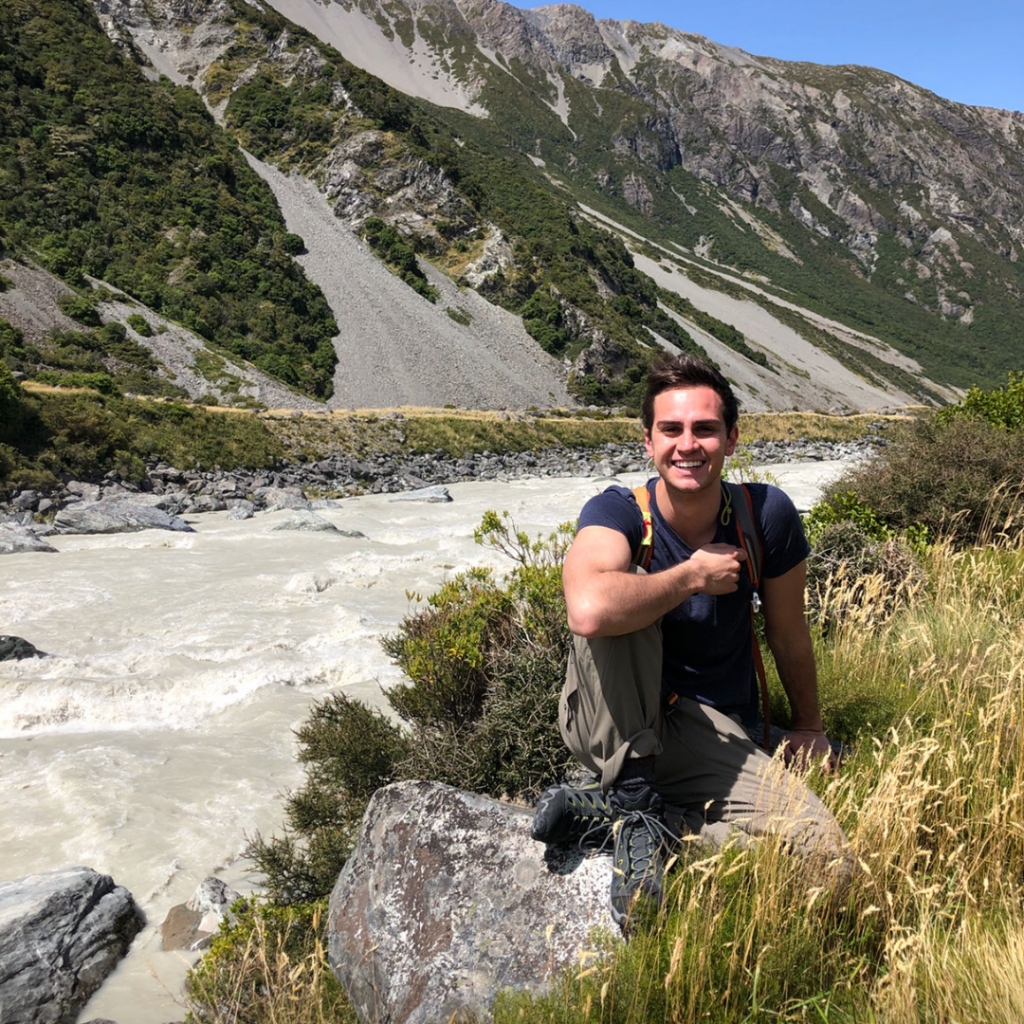Student Blog Post: Jack Polentes
Jack Polentes on his 2023 Knauss Marine Policy Fellowship.
My name is Jack Polentes (G’23), and I am a 2023 Knauss Marine Policy Fellow.
I’m a master’s student in my final semester at Georgetown University’s Environmental Metrology & Policy Program (EMAP). I came here to grow my scientific background and develop my skills to broaden my experience outside of the lab and field, and plan to tackle the issues of the day- environmental racism, climate literacy, and scientific communication.
What is Knauss?
The Knauss Marine Policy fellowship are programs run by the National Seagrant Foundation that places graduate students (Ph.D., Masters, law, etc.) in the executive or legislative branches of government as policy advisors. This past week, I had the pleasure of starting my fellowship and meeting 83 incredible scientists, attorneys, and ocean advocates from all over the United States at the National Oceanic & Atmospheric Administration’s (NOAA) Headquarters. There, I and the rest of the fellows kicked off orientation by meeting with the National Seagrant program, Administrator Spinrad, scientists, and policy makers who prepared us for the year to come.
As an executive Knauss fellow, I have the pleasure of working for the United States Fish & Wildlife Service (FWS) in the Headquarters’ Congressional and Legislative Affairs (CLA) division. I am incredibly excited about this placement as it will give me experience in a federal agency while also allowing me to liaise with congress and program offices around the country. With a background in geology and chemistry, it wasn’t until I was exposed to the world of policy and politics through the Georgetown EMAP program, that I was able to see how the bridge between science and policy works in the DC Ecosystem. After some time working for the Wilson Center’s Environmental Change & Security Program (ECSP) as well as the government relations firm Forbes Tate Partners (FTP), I began to appreciate just how much consequence the field of environmental regulation and lawmaking has on the earth. Now, the Knauss fellowship will give me a license to extend my knowledge of scientific research and conservation while also exploring the exciting, fast-paced world of policy.
With FWS CLA I will learn to cultivate relationships on Capitol Hill, brief government officials, advocate for legislation on behalf of my agency, and travel to field offices all while focusing on exciting issues, such as fisheries, endangered species, national wildlife refuges, invasive species, migratory birds, international affairs, marine mammals, and habitat conservation.
Why were you drawn to this?
I was drawn to this fellowship since my early days as an undergraduate. In 2019, I was lucky enough to be selected for the National Hollings scholarship and was sent to Washington D.C. where I first learned about Knauss. The ability to work with expert scientific material and apply it to regulate, fund projects, or lobby congress for action has been a dream of mine since then. As a science student learning about the fellowship, I realized just how versatile my academic experiences could be when applied appropriately. This outlook led to my attendance at Georgetown, exploration of jobs outside of the lab, and a more inclusive outlook on the career paths in environmental stewardship and conservation.
Now as a fellow, I feel excited and humbled to have the privileged of working alongside so many experts in their fields of research and law to help advise on marine policy. Knauss has one of the most robust fellowship alumni networks across the DMV and chances are that most federal offices (e.g., FWS, USGS, NOAA, EPA, State, Whitehouse) have multiple fellows willing to help one another. This fellowship will afford me the opportunity to work with offices that I previously never would have dreamed of engaging with. It is a result of the help, support, and encouragement provided by my friends, family, advisors, and Georgetown EMAP.
What Was the Application Process like?
My application to the Knauss Fellowship took several months of essay writing, interviewing, collecting references, and sitting on the edge of my seat. Because DC doesn’t have its own Seagrant office, I ended up applying through Delaware where I was interviewed by Dr. Joanna York and the rest of the Delaware state Seagrant office. Once my nomination was elevated to the National Seagrant Office, it was simply a waiting game. I encourage any Georgetown graduate student who is passionate about marine and environmental stewardship to apply to this fellowship and am happy to offer guidance and resources in your application.

